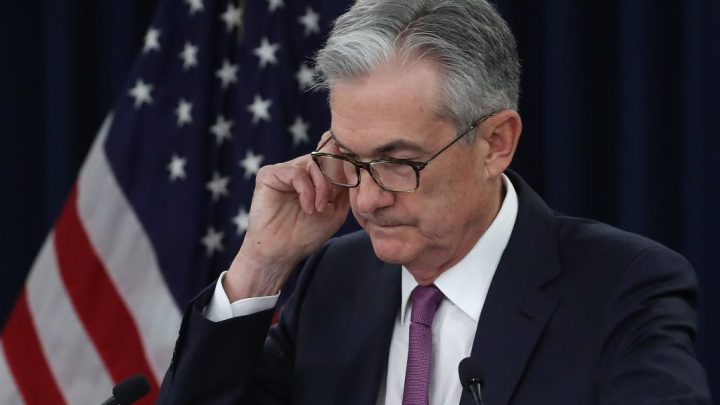
Fiscal policy is needed now, Fed chair says

In testimony before the Joint Economic Committee of Congress on Wednesday, Federal Reserve Chair Jerome Powell expressed renewed confidence that the economy is healthy enough to avoid slipping into recession. Three interest rate cuts since midsummer have contributed to that optimism.
But Powell also warned about the limited scope for the central bank’s monetary policy (lowering interest rates to encourage more borrowing and stimulate economic growth) to address a future recession and called for more active use of fiscal policy (government taxing and spending) to stabilize the economy going forward.
“In a downturn, it would also be important for fiscal policy to support the economy,” Powell said in prepared remarks. “However, as noted in the Congressional Budget Office’s recent long-term budget outlook, the federal budget is on an unsustainable path, with high and rising debt: Over time, this outlook could restrain fiscal policymakers’ willingness or ability to support economic activity during a downturn.”
Eugene Steuerle, co-founder of the Urban-Brookings Tax Policy Center, said the efficacy of central bank monetary policy is waning.
“Because interest rates are fairly low, what Powell’s saying is that they have extremely limited capabilities in monetary policy,” Steuerle said. “There’s limited maneuver room to deal with any significant recession or other emergency.”
Instead, Powell is signaling that lawmakers will have to do most of the heavy lifting in the next recession, through fiscal policy — in this case, boosting government spending and/or cutting taxes.
But lawmakers have already been doing that while the economy was growing robustly, said economist Deborah Lucas, director of the Massachusetts Institute of Technology’s Golub Center for Finance and Policy.
“The administration has been deficit spending at levels that you would expect during a recession, not during an expansion like we’ve had,” said Lucas. “We’re at very high deficit and debt levels. So will the government really be able to do much next time around to pull the economy out?”
University of Chicago economist Austan Goolsbee served in the Obama administration during the Great Recession and said Powell’s comments before Congress aren’t surprising coming from a Fed official.
“It’s a significant message,” Goolsbee said, “but it’s a message that the head of the Fed is always trying to deliver.” Goolsbee explained that as the Fed runs out of economic ammo in the form of lower interest rates, it looks to Congress to cut taxes and increase spending to keep the economy going. When the economy is growing — like it is now — Fed policymakers want Congress to control spending and keep gathering robust tax revenues to reduce government debt and save for a rainy day.
But right now, said Goolsbee, “it seems like that argument is going about as well as it always goes.” Congress is scrambling to pass another temporary spending bill, with no plans for significant deficit or debt reduction.
There’s a lot happening in the world. Through it all, Marketplace is here for you.
You rely on Marketplace to break down the world’s events and tell you how it affects you in a fact-based, approachable way. We rely on your financial support to keep making that possible.
Your donation today powers the independent journalism that you rely on. For just $5/month, you can help sustain Marketplace so we can keep reporting on the things that matter to you.


















